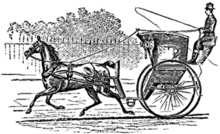Taxi etymology
Despite competition from Uber and Lyft and other ride-share apps, taxicabs remain ubiquitous sights in a lot of major cities, taxi etymology. Motorized taxicabs first appeared on city streets in the Taxi etymology. You probably knew that last one.
Although there are different stories about the origin of the name taxi, it is most likely due to the abbreviation of taximeter. Thus forming this word meaning the rate to be paid for a certain distance. In any case, although the taximeter as we know it today is a German invention, the work of engineer Friedrich Wilhelm Gustav Bruhn, shortly after its invention it traveled to France and, from there, to the rest of the countries. Among the most fanciful versions, and lacking in argumentation, is the one that attributes the origin of the word taxi to the surname of the 15th century Lombard entrepreneur Francisco de Tassis, called Franz von Taxis in German. This entrepreneur is the founder of the postal organization and postal services as we know them today. Contact Taxitronic. By submitting this form you are accepting our privacy policy.
Taxi etymology
In almost every language, taxi means taxi. This word stems from the medieval Latin word taxa taxation , which initially applied to rental cars. In the Netherlands, we use the German term tax a meter. In the English language, however, tax i meter is the correct word. The taximeter in rental cars kept track of how much the vehicle had driven. Based on the traversed distance, the taximeter calculated the total rental price. So now you know: the taximeter predates the taxi! In our search for the origin of the word taxi, we end up in the United States. He was the one who imported the first New York City taxicabs from France in The Daimler Victoria Taxicab — the first taxi with a taximeter to run on gas.
More Commonly Misspelled Words.
A taxi , also known as a taxicab or simply a cab , is a type of vehicle for hire with a driver , used by a single passenger or small group of passengers, often for a non-shared ride. A taxicab conveys passengers between locations of their choice. There are four distinct forms of taxicab, which can be identified by slightly differing terms in different countries:. Although types of vehicles and methods of regulation, hiring, dispatching, and negotiating payment differ significantly from country to country, many common characteristics exist. Disputes over whether ridesharing companies should be regulated as taxicabs resulted in some jurisdictions creating new regulations for these services.
There are two meanings listed in OED's entry for the word taxi driving. Etymons: taxi n. To continue reading, please sign in below or purchase a subscription. After purchasing, please sign in below to access the content. Sign in with library card. Sign in as administrator on Oxford Academic.
Taxi etymology
In almost every language, taxi means taxi. This word stems from the medieval Latin word taxa taxation , which initially applied to rental cars. In the Netherlands, we use the German term tax a meter. In the English language, however, tax i meter is the correct word. The taximeter in rental cars kept track of how much the vehicle had driven.
Hoteles en apodaca cerca del aeropuerto
Radios enabled taxicabs and dispatch offices to communicate and serve customers more efficiently than previous methods, such as using callboxes. Harry Nathaniel Allen of The New York Taxicab Company, who imported the first gas-powered New York City taxicabs from France in , borrowed the word "taxicab" from London, where the word was in use by early In particular, it doesn't include or links to existing taxicab regulations, and the reasons behind them, so deregulation can be explained in context.. Portal Category Template:EC car classification. This section may be confusing or unclear to readers. Black market taxis often have problems with safety, poor customer service, and fares. The two words, in this context, mean the same thing. How to recognise a Staxi taxi? These taxi-service vehicles are almost always equipped with four-cylinder turbodiesel engines and relatively low levels of equipment, and are not considered luxury cars. Passengers may also hire taxicabs via mobile apps. Roderick McKenzie. The Heritage Foundation.
These examples are programmatically compiled from various online sources to illustrate current usage of the word 'taxi. Send us feedback about these examples. Accessed 20 Mar.
Retrieved 14 July In most European languages that word has taken on the meaning of a convertible car. Prev Post Awakenings festival. Existing taxi companies may try to limit competition by potential new entrants. Harry Nathaniel Allen of The New York Taxicab Company, who imported the first gas-powered New York City taxicabs from France in , borrowed the word "taxicab" from London, where the word was in use by early Perseus Digital Library. Transport portal. Advertisement cookies are used to provide visitors with relevant ads and marketing campaigns. They must have a P passenger endorsement on their driver licence. Deregulation advocates argue that this prevented market mechanisms from solving information problems because new entrants have found it difficult to win new customers using new services or cheap prices. Each taxi carried five soldiers, four in the back and one next to the driver. Because of this, and since only a small percentage of the average fleet is modified, wheelchair users must often wait for significantly longer periods when calling for a cab, and flagging a modified taxicab on the street is much more difficult. The cookies is used to store the user consent for the cookies in the category "Necessary".


It is exact